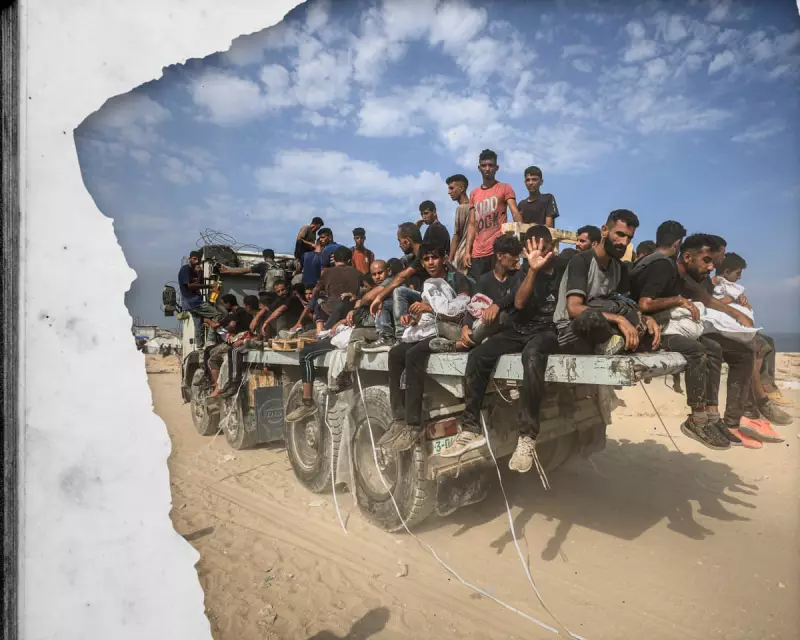
A harrowing and deadly new children's game, mirroring the dystopian Netflix series 'Squid Game', has taken root in the streets of Gaza, exposing the profound psychological toll of the ongoing conflict and blockade on its youngest residents.
Unlike the fictional show, the consequences of this real-world imitation are tragically final. Disturbing footage verified by the BBC shows young boys, some as young as 12, participating in their own version of the 'Red Light, Green Light' game. The stark difference is the weaponry: instead of toy guns, they use live ammunition and real explosives.
A Desperate Reflection of a Harsh Reality
This grim playground activity is not mere child's play; it is a visceral reflection of the environment these children are forced to endure. The report highlights how the series' themes of desperation and life-or-death stakes for financial gain resonate deeply in Gaza, where poverty is rampant and opportunities are vanishingly scarce.
One teenager interviewed poignantly explained the twisted logic: the risk of engaging in this lethal game felt equivalent to the constant danger of simply existing in Gaza, where airstrikes and violence are a daily threat. The game becomes a perverse form of agency in a world where they have little control.
International Outcry and Official Responses
The emergence of this footage has sparked international alarm and raised serious questions about the duty of care owed to children in conflict zones. The BBC's verification of the videos has forced the issue into the global spotlight.
In response to the backlash, Netflix has been pressed on its responsibility. The streaming giant stated it was "aware of the situation" and was "assessing how best to respond," highlighting the complex ethical challenges global media companies face when their content intersects with real-world trauma.
The Human Cost of Conflict
Beyond the immediate shock value, this story serves as a devastating metaphor for the plight of Gazan youth. It underscores how years of conflict, a crippling blockade, and a collapsed economy have eroded childhood itself, normalising extreme violence and distorting the very concept of play.
This is not an isolated incident but a symptom of a deeper humanitarian catastrophe. It is a stark reminder that the casualties of war are not only counted in immediate deaths and injuries but also in the stolen childhoods and long-term psychological scars inflicted on an entire generation.





